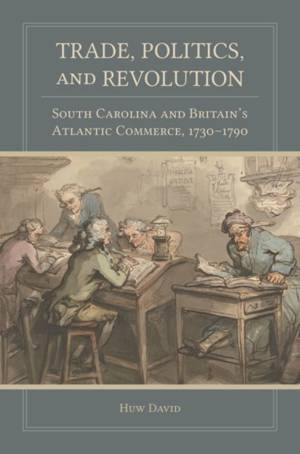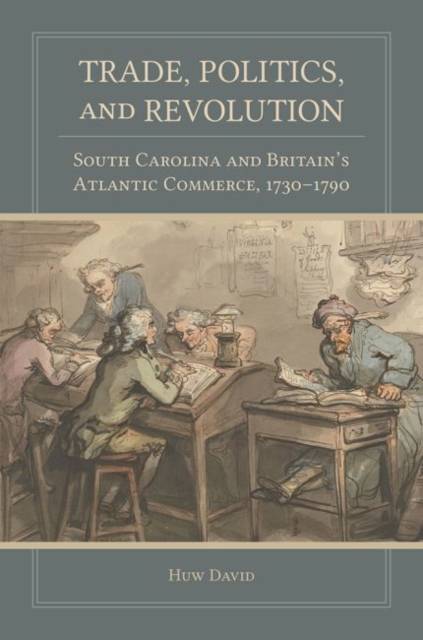
- Afhalen na 1 uur in een winkel met voorraad
- Gratis thuislevering in België vanaf € 30
- Ruim aanbod met 7 miljoen producten
- Afhalen na 1 uur in een winkel met voorraad
- Gratis thuislevering in België vanaf € 30
- Ruim aanbod met 7 miljoen producten
Omschrijving
A study of early transatlantic trade in South Carolina that exposes the divisive complexity that led to war
London's "Carolina traders," a little-known group of transatlantic merchants, played a pivotal but historically neglected role in the rise of tensions in the South Carolina lowcountry. In Trade, Politics, and Revolution, Huw David delves into the lives of these men and explores their influence on commerce and politics in the years before and after the American Revolution.
Beginning in the 1730s, a few select merchants in Charleston fueled South Carolina's economic rise, used their political connections to prosper in British-Carolinian trade, and then relocated to London, becoming absentee owners of property, plantations, and slaves. Using correspondence, business and slave trade records, newspapers, and a wealth of other sources, David reconstructs the lives of these Carolina traders and demonstrates their shifting but instrumental influence over the course of the eighteenth century. Until the 1760s these transatlantic traders served as a stabilizing force, using their wealth and political connections to lobby for colonial interests. As the British Empire flexed its power and incited rebellion with laws such as the so-called Intolerable Acts, South Carolinians became suspicious of the traders, believing them to be instruments of imperial oppression.
Trade, Politics, and Revolution offers a fresh understanding of trade in South Carolina's early history and the shifting climate that led to the American Revolution, as well as reaching beyond the war to explore the reconstruction of trade routes between the newly founded United States and Great Britain. By focusing on one segment of transatlantic trade, David provides a new interpretive approach to imperialism and exposes the complex, deeply personal rift that divided the Carolina traders from their homeland and broke the colonies from the mother country
Specificaties
Betrokkenen
- Auteur(s):
- Uitgeverij:
Inhoud
- Aantal bladzijden:
- 288
- Taal:
- Engels
- Reeks:
Eigenschappen
- Productcode (EAN):
- 9781611178944
- Verschijningsdatum:
- 15/10/2018
- Uitvoering:
- Hardcover
- Formaat:
- Genaaid
- Afmetingen:
- 165 mm x 229 mm
- Gewicht:
- 544 g

Alleen bij Standaard Boekhandel
Beoordelingen
We publiceren alleen reviews die voldoen aan de voorwaarden voor reviews. Bekijk onze voorwaarden voor reviews.











